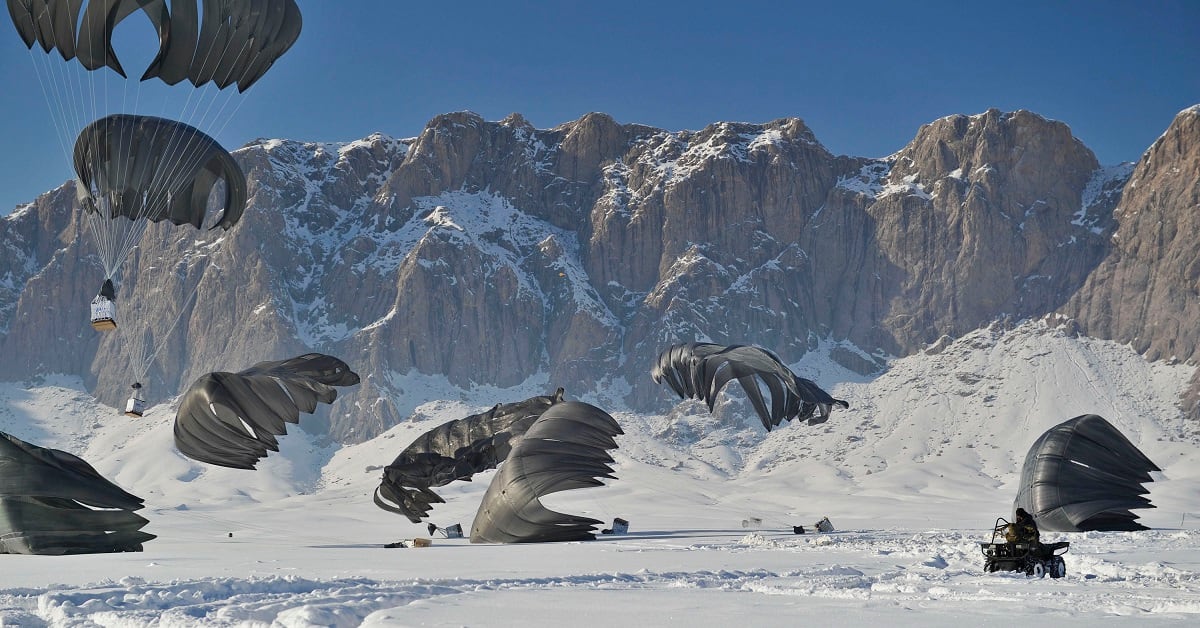Late last week, less than 100 miles from Afghanistan’s capital city of Kabul, Taliban forces launched a major assault that overwhelmed the strategically important city of Ghazni and allegedly captured portions of it.
That battle in eastern Afghanistan was still waging Monday morning when the U.S. Air Force and elements of the U.S. Army’s 101st Airborne Division were called in to support Afghan government troops.
“Ghazni City remains under Afghan government control, and the isolated and disparate Taliban forces remaining in the city do not pose a threat to its collapse as some have claimed," Lt. Col. Martin O’Donnell, a spokesman for U.S. forces in the country, told Military Times.
American troops operating under the command of U.S. Forces-Afghanistan have been advising Afghan National Defense and Security Forces and conducting airstrikes since Friday.
“U.S. advisers are assisting the Afghan forces, and U.S. airpower has delivered decisive blows to the Taliban, killing more than 140 since [Friday]," O’Donnell said. “In addition to the initial strike and close-air support on Friday, U.S. forces conducted five strikes Saturday, 16 strikes Sunday and two thus far today.”
On Sunday, the Taliban’s official news website, Voice of Jihad, claimed insurgent forces seized “a large base with strategic importance near the governor’s office," as well as dismantled three posts close to downtown Ghazni before taking over Ghazni’s main prison.
The number of Afghan government forces and civilians killed in the fighting has been confused, as news reports from the city were slowed over the weekend when fighting destroyed the area’s telecommunications towers, according to Reuters.
Still, multiple news outlets reported that the elite Afghan commandos were routed in their defense of the city.
“The fact that such an elite unit was overrun and took a high rate of casualties may be an indication that the Commandos and Special Forces may be overworked and are losing their effectiveness," the Long War Journal wrote. "These units run at a high operational pace, and have taken significant casualties as of late.”
RELATED

However, O’Donnell denied that the prison was under Taliban control. He also pushed back against reports that Highway 1 — an ancient ring road that circles Afghanistan and connects many cities, including Ghazni and Kabul — was closed.
“Claims of Highway 1 being closed and prisoners being freed are also false. Highway 1 is open, and Afghan forces are occupying key checkpoints to maintain security," O’Donnell said. "Afghan forces repelled an ineffective Taliban attack against the city prison [on Sunday], which remains firmly under government control.
“That said, clearing operations are ongoing, and sporadic clashes with the Taliban, particularly outside the city, continue,” he added.
That reality was made clear by footage released by local TV broadcaster TOLO News, which posted footage allegedly from Ghazni Monday morning showing Taliban fighters wandering around burning buildings inside the city.
The slow approach to expelling the Taliban from Ghazni City stems from the government’s desire to avoid civilian casualties and destruction to the city, Lt. Gen. Mohammed Sharif Yaftali, Afghan Ministry of Defense chief of general staff, said during a press conference Sunday.
He added that local Taliban did not attack the city. Instead, Taliban fighters from Helmand, Zabul, Paktia and Paktika provinces were brought in for the assault, according to a press release from the Afghan Ministry of Defense.
The release also stated that all strategic areas, such as the governor’s office, provincial chief of police, prison, and Afghan National Army bases in Ghazni, are now in the hands of government.
The assault on Ghazni City comes after another assault on Farah City in the western part of the country in May. During that attack, U.S. Air Force A-10 Warthogs and MQ-9 Reapers were called in to hold off Taliban forces who had penetrated the city’s defenses.
Although the Farah City assault was repelled, the Taliban claimed it a success, as it showed their strength and unity, and the Afghan government’s inability to defend major urban areas. Meanwhile, U.S. and Afghan government officials continue to call for a negotiated settlement.
“Clearly the Taliban have paid no heed to the Afghan people’s calls for them to reconcile and join the peace process,” O’Donnell said.
Kyle Rempfer was an editor and reporter who has covered combat operations, criminal cases, foreign military assistance and training accidents. Before entering journalism, Kyle served in U.S. Air Force Special Tactics and deployed in 2014 to Paktika Province, Afghanistan, and Baghdad, Iraq.
